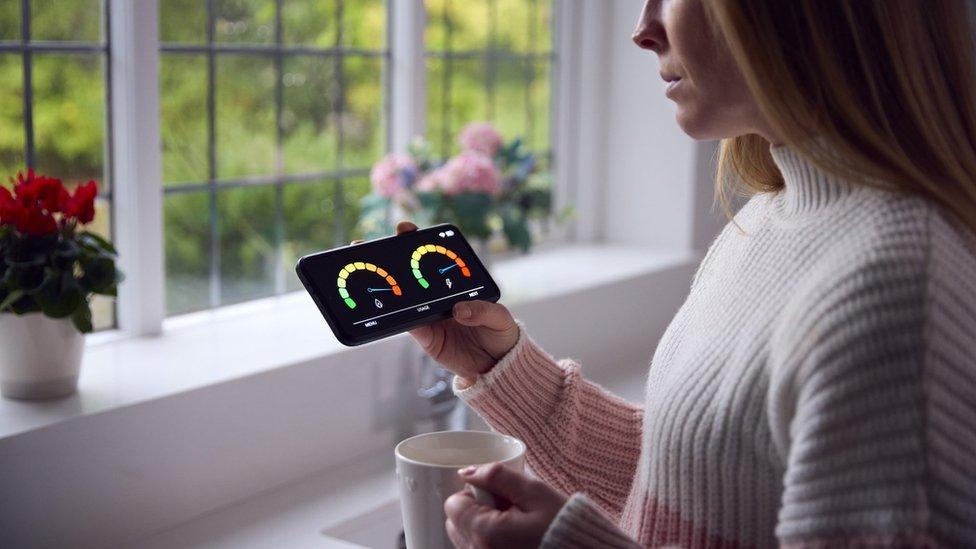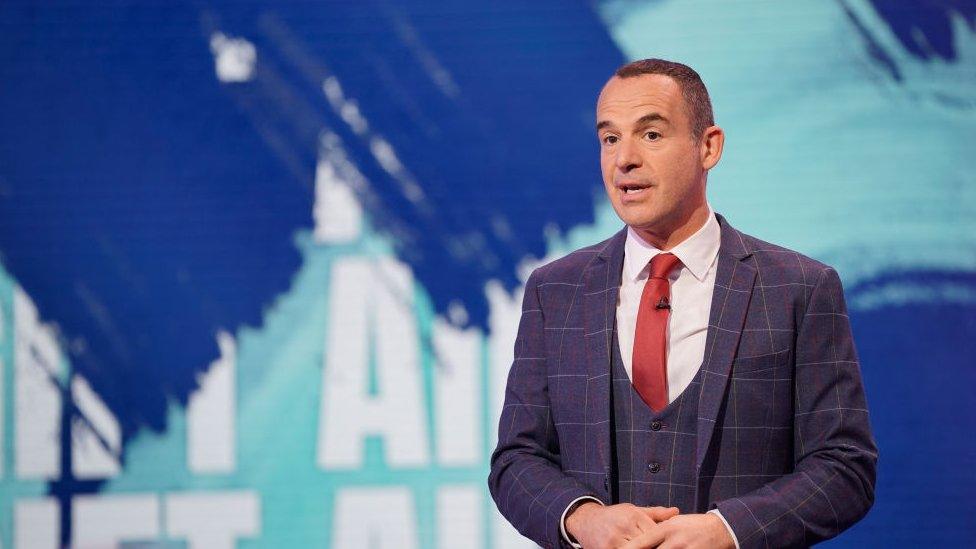How do smart meters work and how do I know if mine is broken?
- Published

Almost four million smart meters in Great Britain were not working at the end of 2023, according to government data.
Faulty meters can mean customers rely on estimated bills, with some paying too much and struggling to get their money back.
What is a smart meter?
Smart meters measure how much gas and electricity you use. You get one meter for each energy supply.
They can record half-hourly price and consumption data, external and automatically send readings to your energy supplier at least once a month.
According to the Energy Saving Trust, this means you will be billed accurately for the energy you've used.
Smart meters usually come with an in-home display, which can help you track how much energy you're using.
How do smart meters work?
Smart meters don't use your wifi.
Instead, they include a communications hub which connects the smart meter to the in-home display as well as a secure national smart meter network.
This lets smart meters talk to different energy suppliers, says Ofgem.
Some earlier smart meters use the 3G network instead.
In-home displays, which update every 30 minutes for gas and in near real-time for electricity, external, don't affect the readings supplied to your energy company, external.
Are smart meters accurate?
All smart meters have to be officially approved and their accuracy is monitored, external, the UK government says.
Smart Energy GB, a government-backed non-profit organisation supporting the use of smart meter technology, says they are as accurate as traditional meters, external.
How many smart meters are broken?
According to government figures, there were almost 35 million smart meters in homes and businesses, external across Great Britain at the end of 2023.
Almost four million of those were not working properly, according to the Department for Energy Security and Net Zero.
This means they were not operating in "smart mode" and sending readings to suppliers.

Martin Lewis says he believes one in five smart meters don't work
However, Martin Lewis, from MoneySavingExpert, told the BBC Radio 4 PM programme that meters with other problems - such as those sending the wrong readings, or a fault with the in-home display - should also be included in the government statistics.
This would mean that about one in five smart meters don't work, he said.
Energy UK, the trade association for the energy industry, says suppliers must replace faulty meters.
How do I know if my smart meter is broken?
Unusual bills, sometimes caused by connectivity issues, and a blank screen on the meter can be signs it is not working correctly.
Your bill will also contain information that could help you find out.
According to Which?, readings on your bill should be marked "smart", external.
If they are marked with an "e", they're estimated readings, says Citizens Advice.
You can also use its smart checker tool, external to see if there is a problem between the meter and the central network.
What can I do if my smart meter is broken or my bill is wrong?
You should contact your supplier - it should help you fix your meter.
If they fail to do so within eight weeks, Ofgem has a guide on how to complain to the Energy Ombudsman., external It advises taking manual meter readings in the meantime.
Customers who are concerned about paying their bill should also talk to their energy provider. Suppliers are required to offer tailored repayment plans and, where appropriate, payment holidays, Ofgem said.
You can also request an independent test of your meter, external, says Smart Energy GB.
Although it is free, you may have to pay your supplier for organising it if your meter is found to be working correctly.
The government says this was the case for the vast majority of meters tested in 2021.
Do I have to have a smart meter?
Conventional energy meters need to be replaced every 10 to 20 years and most suppliers no longer install non-smart versions.
However, it is not compulsory to have a smart meter unless your current meter is faulty or at the end of its working life, says Ofgem.
You can therefore choose not to accept an offer to have one fitted.
However, if you refuse, you might find it hard to access all tariffs, external, according to Citizens Advice.
In general, suppliers must install a smart meter if they are replacing a meter or installing a meter for the first time, external, such as in a new property, says Ofgem.